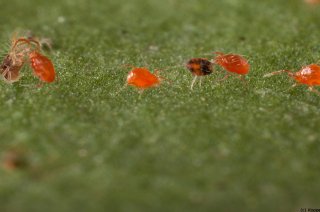
RP7 Improving pest control efficiency: a modelling approach
The aim of this research project is to develop a sound and general applicable theoretical modeling frame work that will identify the most important biological features of biocontrol agents and how these should be targeted in genetic improvement programs while maintaining genetic variation.
Developing a sound biological control effort against noxious pests with beneficial insects requires an accurate identification of the most important biological traits that are involved in their crop protection efficacy, especially when the goal is to improve the efficacy of these beneficial insects through breeding selection programmes. Once these traits are identified, it is important to understand how their genetic variation is maintained in natural populations - or can be maintained in mass-reared artificial systems.
The PhD candidate will: (1) develop a theoretical framework trying to identify what the most important biological features of insect natural enemies are that determine their potential efficacy in biological control programmes, and (2) try to understand the environmental biotic and abiotic conditions under which genetic variation of these traits can be maintained in insect populations.
The theoretical models developed will remain as generic as possible, but – if needed – models will be parameterized for specific biological systems. The modelling framework will be essentially based on Monte Carlo simulations coupled to optimization numeric algorithms (e.g., Genetic Algorithms), and sensibility analyses.
